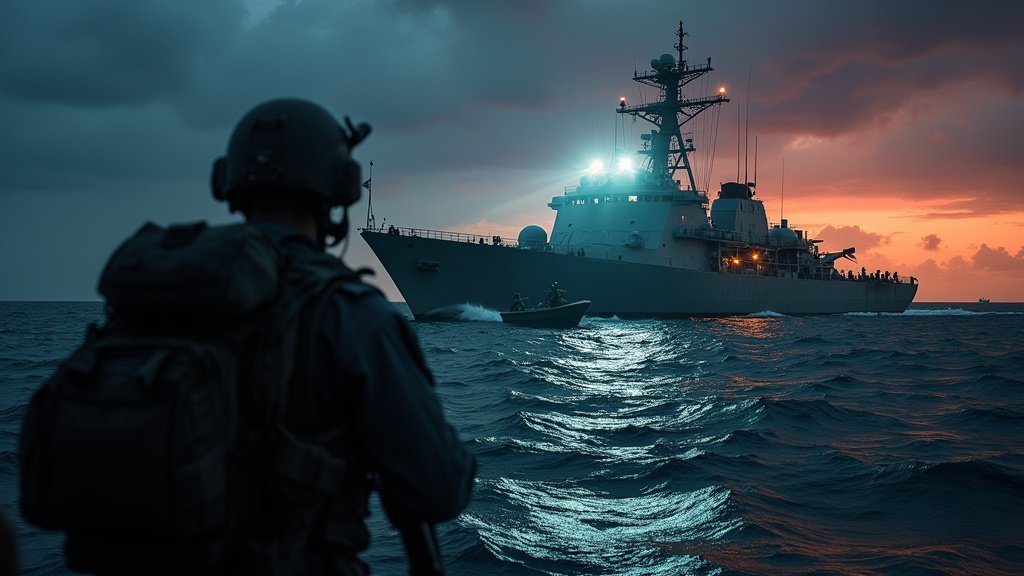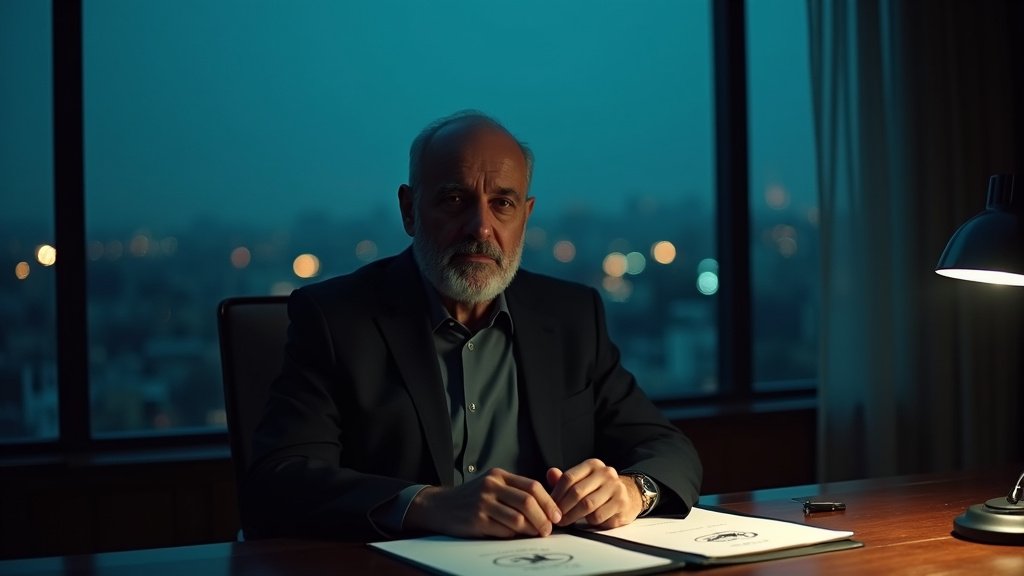The United States has carried out a third lethal strike against a suspected drug-trafficking vessel in the Caribbean in recent weeks, President Donald Trump announced late Friday. The operation, which killed three individuals aboard the vessel, is part of an intensified US military campaign against narcotics networks operating in the region and has further escalated already strained relations with Venezuela.
President Trump declared on his Truth Social platform that the strike was ordered by him and executed by the U.S. military within the U.S. Southern Command’s area of responsibility. He stated that intelligence confirmed the vessel was “trafficking illicit narcotics” and transiting a known smuggling route “en route to poison Americans.” The deceased were described by Trump as “male narcoterrorists,” and he emphasized that no U.S. forces were harmed. The incident follows two previous similar strikes announced earlier in September, bringing the total number of reported fatalities to 17.
Venezuela has vehemently condemned the U.S. actions, labeling them an “undeclared war” and demanding a United Nations investigation. Venezuelan Defense Minister Vladimir Padrino Lopez stated that those killed were “executed without the right to a defence,” accusing the U.S. of targeting individuals without due process. Venezuela’s Attorney General Tarek William Saab has also called for a UN probe, characterizing the strikes as “crimes against humanity.”
Escalating Tensions and Military Build-up
The series of strikes are occurring amidst a significant U.S. military build-up in the Caribbean. Warships, F-35 fighter jets deployed to Puerto Rico, and other naval assets have been positioned in international waters off Venezuela’s coast as part of what the U.S. describes as an anti-drug operation. This show of force has stoked fears in Venezuela and across the region of potential U.S. intervention. In response, Venezuela has conducted its own military exercises, including on its Caribbean island of La Orchila.
These developments are unfolding against a backdrop of deep-seated animosity between the Trump administration and Venezuelan President Nicolás Maduro. The U.S. has long maintained pressure on Maduro’s government, accusing it of drug trafficking and human rights abuses, and has placed a $50 million reward on his head. The administration has designated several Venezuelan-linked groups, such as the Tren de Aragua gang, as foreign terrorist organizations, which officials cite as a legal basis for the lethal strikes.
Questions Over Legality and Evidence
While the Trump administration frames these operations as a necessary escalation to combat drug cartels and protect American communities, the strikes have drawn significant criticism. Legal experts, human rights advocates, and some U.S. lawmakers have raised serious questions about the legality of using lethal force in these circumstances, particularly since drug trafficking is not a capital offense under U.S. law. Critics argue that these actions could constitute extrajudicial killings and violate international law, especially without clear evidence of imminent threats or the presence of drugs on board the targeted vessels.
Despite U.S. assertions, specific evidence substantiating the claims against the targeted boats and their crews has been scarce, leading to debate and scrutiny. The trend of these happenings is being closely watched globally.
A Controversial Shift in Drug Interdiction
Traditionally, maritime drug interdiction in the Caribbean has been handled as a law enforcement matter, primarily by the U.S. Coast Guard, involving interdiction, seizure of narcotics, and prosecution of suspects. The shift to lethal military strikes marks a significant departure from this established practice. The administration’s strategy appears to be rooted in a broader “America First” foreign policy approach, prioritizing national security interests and adopting a more aggressive stance against transnational criminal organizations.
This ongoing situation is a trending topic, with analysts closely following any exclusive developments and further statements from both the U.S. and Venezuelan governments. The escalating rhetoric and military posturing suggest that tensions in the region are likely to remain high as the U.S. continues its campaign against alleged narcotrafficking operations originating from Venezuela.





